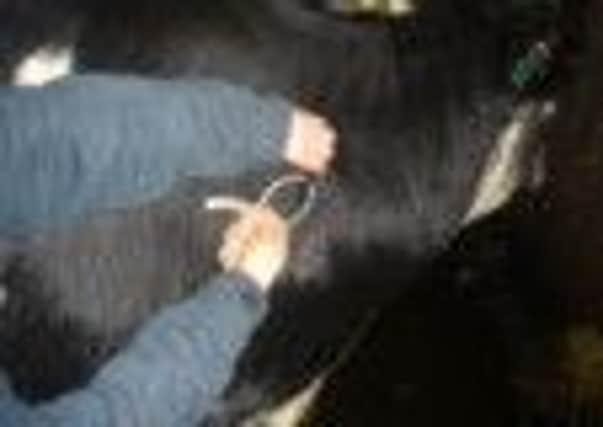Comment: Challenge to succeed as a female vet


It is four years now since I did it... cross the border from Lancashire to work as a farm animal veterinary surgeon for The Minster Veterinary Practice in York.
Even more recently, I decided to join the Future Farmers of Yorkshire group as a member, providing with a next step after being associated with the Young Farmers movement.
Advertisement
Hide AdAdvertisement
Hide AdAfter crossing the border I graduated from The University of Liverpool after five years of study; during this time I continued relief milking on four dairy farms and lambing on a number of different sheep farms throughout the spring.
I married my husband two years ago, he farms with his two brothers and parents on the family dairy, beef and sheep farm; we also have our own flock of 120 sheep and small suckler herd.
I was made an associate vet in the Farm Animal Department in spring 2014 and was one of the official show vets for the Great Yorkshire Show in July.
It has not been plain sailing to get to where I am today. Not being from a farming family, I haven’t gained experience in the livestock industry from staying ‘at home’. Through fierce determination to prove the people who told me I couldn’t do it wrong, and spending as much time on farms as possible, I am now able to discuss production, performance and economics with my clients with confidence.
Advertisement
Hide AdAdvertisement
Hide AdI think the secret to most success is perseverance and being able to adapt to new challenges; these are qualities that anyone wanting a future in veterinary science or agriculture needs.
Vets and farmers can be taught about best practice, but each situation can present a different set of challenges such as building design, stocking density, labour and even the weather. As a vet I have to combine my knowledge with my client’s knowledge of their system and stock to find a solution, this is quite often a compromise and the best results come from teamwork.
It is sad to say that starting out as a female in the industry has been slightly daunting and some clients will still request male vets. With university intake for veterinary degrees being 80 per cent female, I think some of the opinions are changing and we are proving that we can give the boys a run for their money!
TB control is one of the biggest issues that we face as an industry. An extraordinary amount of veterinary time is spent TB testing and although Yorkshire is an area of low risk, TB breakdowns do occur where farmers move infected cattle into the area from high risk areas. It is as much the farmer’s responsibility to control the spread as the vets and government.
Advertisement
Hide AdAdvertisement
Hide AdIt is important to use medicines responsibly; this is easier to do when vets and farmers work in partnership to tackle diseases.
The great thing about the Future Farmers of Yorkshire group is that it encourages closer working relationships between farmers and vets, which will benefit the whole industry.
Future Farmers of Yorkshire was launched in November 2010 and is supported by the Yorkshire Agricultural Society. It brings together younger farmers, vets and industry supporters.